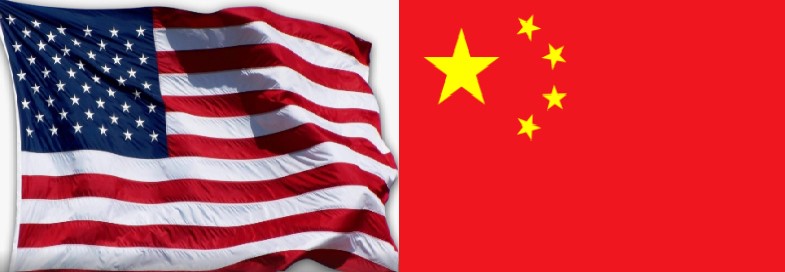
(Photo : BT Creative)
- Four Chinese industry associations have warned against purchasing U.S. chips, potentially impacting U.S. chipmakers like Nvidia, AMD, and Intel.
- This warning follows the U.S.'s third crackdown on China's semiconductor industry in three years, with export restrictions imposed on 140 companies.
- The Chinese industry associations represent some of China's largest industries, and collectively count 6,400 companies as members.
- The escalating tensions between the U.S. and China indicate changing dynamics in the global tech industry, with potential far-reaching implications.
In a recent development that has sent shockwaves through the global tech industry, four of China's top industry associations have issued a rare coordinated statement warning Chinese companies against purchasing U.S. chips, citing safety concerns. This move comes in response to Washington's restrictions on Chinese chipmakers and could potentially impact U.S. chipmaking giants such as Nvidia, AMD, and Intel.
The industry associations' warning follows the U.S.'s third crackdown on China's semiconductor industry in three years, which saw export restrictions imposed on 140 companies, including chip equipment maker Naura Technology Group. Despite these export controls, U.S. chipmaking giants have managed to maintain their presence in the Chinese market. However, this new development could significantly affect their operations.
The Semiconductor Industry Association, a U.S. trade association representing major chipmakers, has responded to these warnings, stating that the claims that American chips are 'no longer safe or reliable' are simply inaccurate. They have reiterated their belief that export controls should be narrow and targeted to meet specific national security objectives and have urged both governments to avoid further escalation.
China's Response to U.S. Export Controls
The Chinese industry associations that issued the warnings represent some of China's largest industries, including telecommunications, the digital economy, autos, and semiconductors. Collectively, they count 6,400 companies as members. However, the statements released did not provide specific reasons as to why U.S. chips were deemed unsafe or unreliable.
In addition to the warnings about U.S. chips, Beijing has also banned exports of rare minerals used in military applications, solar cells, fiber optic cables, and other manufacturing processes. This move has prompted a response from the White House National Security Council, which has stated that the U.S. will take necessary steps to deter other coercive actions from China and continue efforts to diversify supply chains away from the nation.
Tom Nunlist, associate director at policy research consultancy Trivium China, has suggested that the warnings from the associations could be perceived as soft advice. Companies may listen to it, but whether they take action would be dictated by the market. He also added that the export ban on critical minerals was much more crucial, indicating a significant shift in China's approach to retaliating against moves by the United States.
Impact on U.S. Chipmakers and Future Implications
The Internet Society of China has urged domestic companies to think carefully before procuring U.S. chips and seek to expand cooperation with chip firms from countries and regions other than the United States. It has also encouraged domestic firms to proactively use chips produced by both domestic and foreign-owned enterprises in China.
The China Association of Communication Enterprises has stated that it no longer views U.S. chip products as reliable or safe and has called on the Chinese government to investigate the security of the country's critical information infrastructure supply chain.
This development is reminiscent of China's treatment of U.S. memory chipmaker Micron, which became the subject of a cybersecurity review last year shortly after the U.S. imposed export controls on chipmaking technology to China. China later barred Micron from selling its chips to key domestic industries, impacting a significant percentage of its total revenue.
The escalating tensions between the U.S. and China, even before U.S. President-elect Donald Trump returns to the White House in January, are a clear indication of the changing dynamics in the global tech industry. Trump has promised to impose heavy tariffs on imported Chinese goods, reviving a trade war from his first four-year term as president.
The impact of these developments on the global tech industry remains to be seen. However, it is clear that the actions and decisions of both nations will have far-reaching implications for the global tech industry and beyond.









